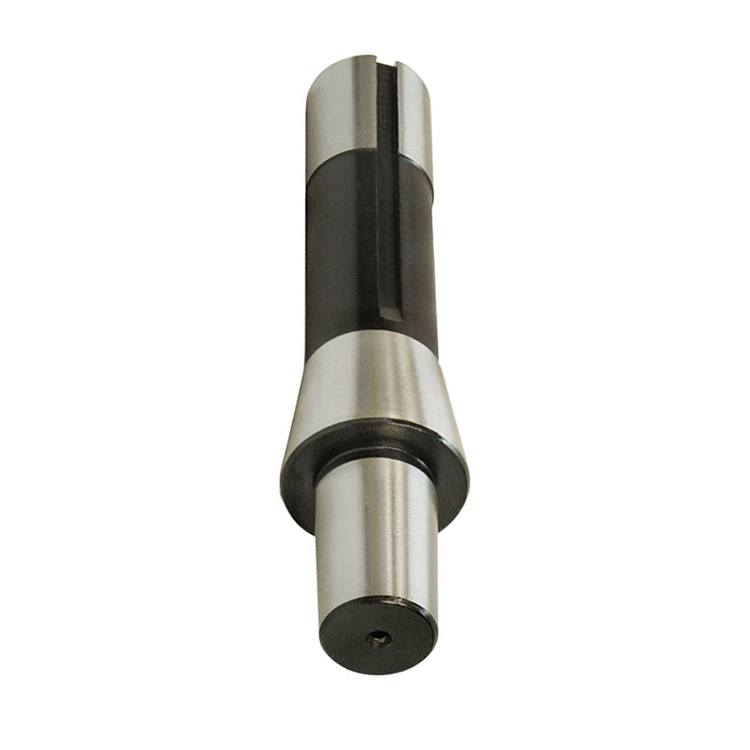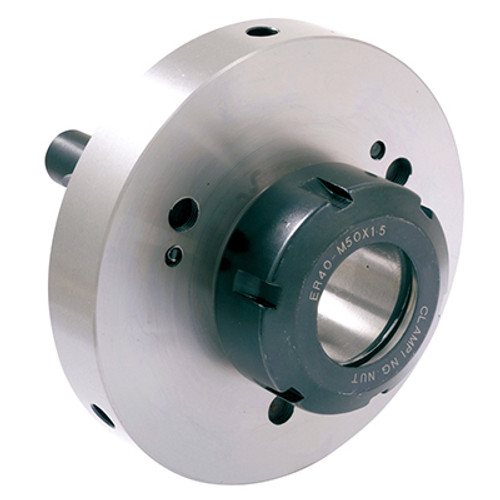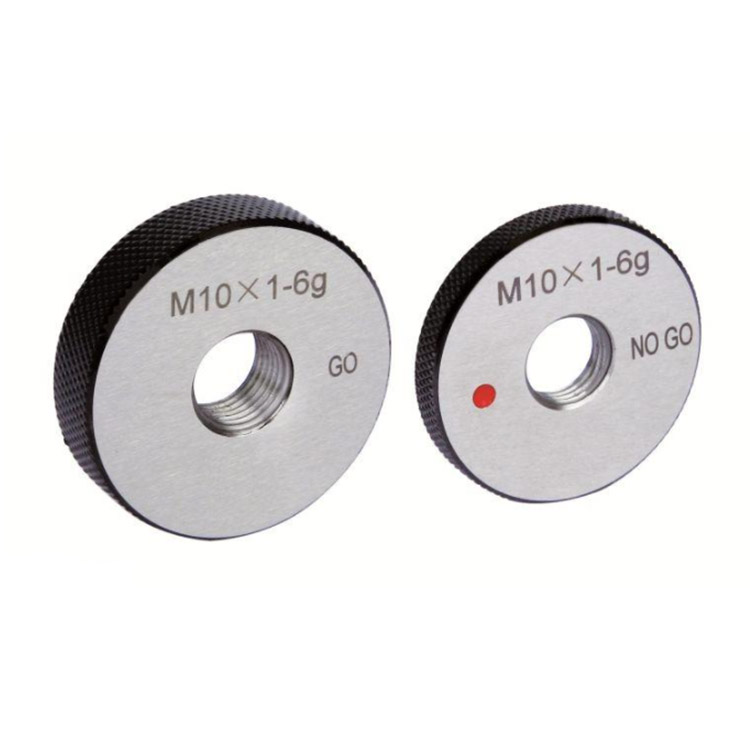Wholesale tapping tools
Navigating the world of wholesale tapping tools can be complex. This guide provides a detailed overview of different types of tapping tools, materials, applications, and factors to consider when purchasing in bulk. Whether you're equipping a machine shop or stocking a retail store, understanding the nuances of tapping tools ensures you get the best value and performance.
Understanding Tapping Tools
Tapping tools, also known as taps, are essential for creating internal threads in materials like metal, plastic, and wood. These threads are necessary for fasteners like screws and bolts to securely join components. Choosing the right tap for a specific application is critical for achieving precise and durable threaded holes.
Types of Taps
Several types of taps are available, each designed for specific purposes. Here are some of the most common:
- Hand Taps: These are the most basic type of tap, typically used manually with a tap wrench. They are available in sets of three: taper, plug, and bottoming taps.
- Taper Tap: Features a long, gradual taper that allows for easy starting and alignment.
- Plug Tap: Has a shorter taper and is used after the taper tap to create a deeper thread.
- Bottoming Tap: Has no taper and is used to create threads to the very bottom of a blind hole.
- Spiral Point Taps (Gun Taps): These taps feature a spiral point that pushes chips forward, preventing them from clogging the threads. They are ideal for through holes and offer faster tapping speeds.
- Spiral Flute Taps: Designed with spiral flutes that pull chips back out of the hole. They are particularly effective for blind holes where chip evacuation is critical.
- Forming Taps (Roll Form Taps): Rather than cutting threads, these taps form them by displacing the material. This creates stronger threads and eliminates chip production. They require specific hole sizes.
- Machine Taps: Designed for use with power tools like drilling machines and CNC machines. They are typically made from high-speed steel (HSS) or carbide for increased durability and cutting speed.
Materials Used in Tapping Tools
The material used in a tap significantly impacts its performance and lifespan. Common materials include:
- High-Speed Steel (HSS): A popular choice due to its good balance of hardness, toughness, and cost-effectiveness. Suitable for a wide range of materials, including steel, aluminum, and plastic.
- Cobalt Steel (HSS-Co): Contains cobalt, which increases heat resistance and hardness. Ideal for tapping harder materials like stainless steel and titanium alloys.
- Carbide: Offers exceptional hardness and wear resistance, making it suitable for high-volume production and tapping abrasive materials. More brittle than HSS and requires rigid setups.
Factors to Consider When Buying Wholesale Tapping Tools
Purchasing wholesale tapping tools requires careful consideration to ensure you get the best value and meet your specific needs. Here are some key factors to evaluate:
- Material Compatibility: Determine the types of materials you will be tapping and select taps made from a compatible material. For example, tapping stainless steel requires taps made from cobalt steel or carbide.
- Tap Size and Thread Pitch: Ensure you select the correct tap size and thread pitch for your application. Refer to engineering standards and specifications to determine the appropriate dimensions.
- Type of Hole: Consider whether you will be tapping through holes or blind holes. Spiral point taps are generally preferred for through holes, while spiral flute taps are better suited for blind holes.
- Tolerance: The tolerance of the tap affects the accuracy of the threads. Tighter tolerances result in more precise threads but may also increase the cost.
- Coating: Coatings like titanium nitride (TiN) and titanium carbonitride (TiCN) can improve tap performance by reducing friction, increasing wear resistance, and extending tool life.
- Quantity: Consider the quantity of taps you need. Wholesale purchases typically offer significant cost savings compared to buying individual taps.
- Supplier Reputation: Choose a reputable supplier with a proven track record of providing high-quality tools. Look for suppliers like Wayleading Tools that offer a wide selection, competitive prices, and excellent customer service.
- Price: Compare prices from different suppliers to ensure you are getting a competitive rate. However, don't solely focus on price. Consider the quality and performance of the taps as well.
Applications of Tapping Tools
Tapping tools are used in a wide range of industries and applications, including:
- Manufacturing: Creating threaded holes in components for assembly.
- Automotive: Repairing and manufacturing automotive parts.
- Aerospace: Producing precision threads in aircraft components.
- Construction: Installing fasteners in metal structures.
- DIY and Home Improvement: Creating threaded holes for various projects.
Tips for Using Tapping Tools Effectively
To ensure optimal performance and prolong the life of your tapping tools, follow these tips:
- Use the Correct Tap Wrench: A tap wrench provides leverage and control when manually tapping.
- Apply Cutting Fluid: Cutting fluid reduces friction, dissipates heat, and improves chip evacuation.
- Use the Correct Speed and Feed: Using the appropriate speed and feed rate for the material and tap size is crucial for preventing tool breakage and producing accurate threads.
- Clean the Tap Regularly: Remove chips and debris from the tap to prevent clogging and ensure smooth cutting.
- Inspect the Threads: Regularly inspect the threads to ensure they meet the required specifications.
Example: Selecting the Right Tap for Stainless Steel
Let's say you need to tap a 1/4'-20 thread in 304 stainless steel. Here's how you would select the appropriate tap:
- Material: Stainless Steel (304)
- Thread Size: 1/4'-20 (1/4 inch diameter, 20 threads per inch)
- Tap Material: Cobalt Steel (HSS-Co) or Carbide
- Tap Type: Spiral Point Tap (for through holes) or Spiral Flute Tap (for blind holes)
- Coating: TiN or TiCN coating for improved wear resistance.
You would then search for wholesale tapping tools that meet these specifications. For example, 'Wholesale 1/4-20 HSS-Co Spiral Point Tap TiN Coated'. Contacting a supplier like Wayleading Tools can help you find the exact tap you need.
Troubleshooting Common Tapping Problems
Even with the best tools and techniques, problems can arise during tapping. Here are some common issues and their solutions:
| Problem | Possible Cause | Solution |
|---|---|---|
| Tap Breakage | Incorrect tap size, excessive force, insufficient lubrication, work hardening of material. | Use the correct tap size, apply consistent pressure, use appropriate cutting fluid, pre-drill a pilot hole slightly larger. |
| Poor Thread Quality | Dull tap, incorrect hole size, excessive speed. | Use a sharp tap, ensure the correct hole size, reduce tapping speed. |
| Chip Clogging | Insufficient lubrication, incorrect tap type for the application. | Apply more cutting fluid, use a spiral point or spiral flute tap. |
Conclusion
Selecting the right wholesale tapping tools requires a thorough understanding of the materials, applications, and factors that influence tap performance. By carefully considering these aspects and choosing a reputable supplier like Wayleading Tools, you can ensure you get the best value and achieve precise, durable threads for your projects.
Related products
Related products
Best selling products
Best selling products-
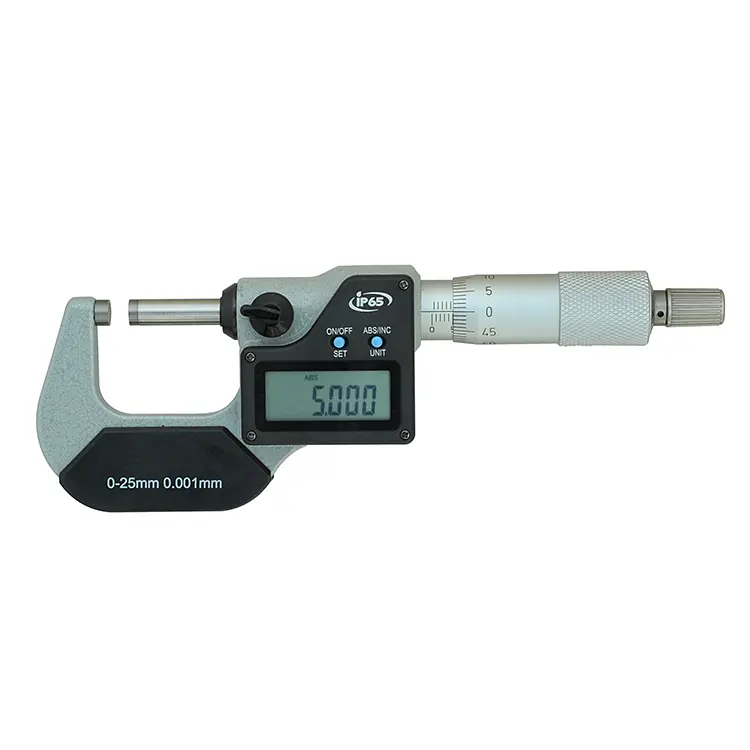 Precision IP65 Digital Outside Micrometer Of Inch & Metric With Data Output
Precision IP65 Digital Outside Micrometer Of Inch & Metric With Data Output -
 30PCS HSS Metric And Inch Size MINI Tap & Die Set
30PCS HSS Metric And Inch Size MINI Tap & Die Set -
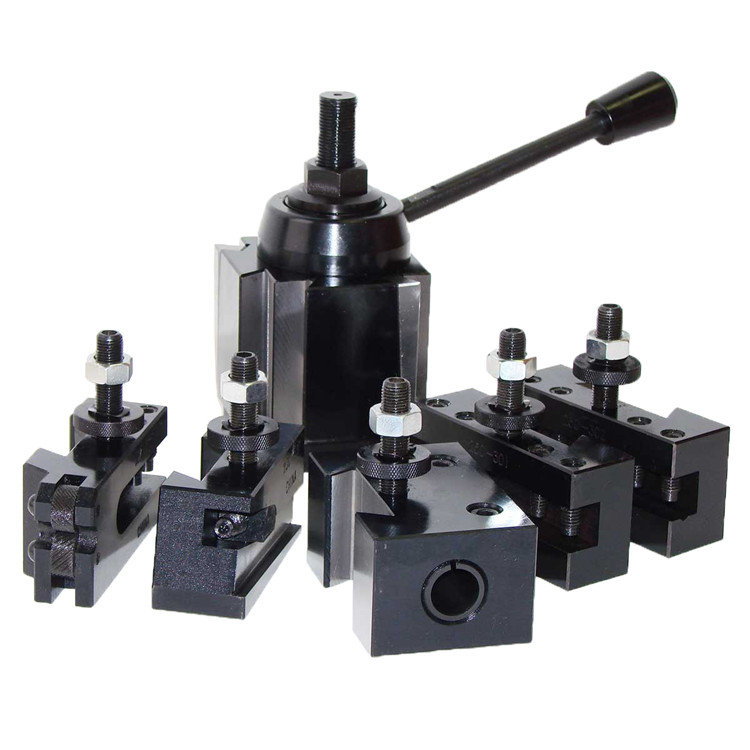 Wedge Type Quick Change Tool Post Set In lathe Machine
Wedge Type Quick Change Tool Post Set In lathe Machine -
 HSS Annular Cutters With Weldon Shank For Metal Cutting
HSS Annular Cutters With Weldon Shank For Metal Cutting -
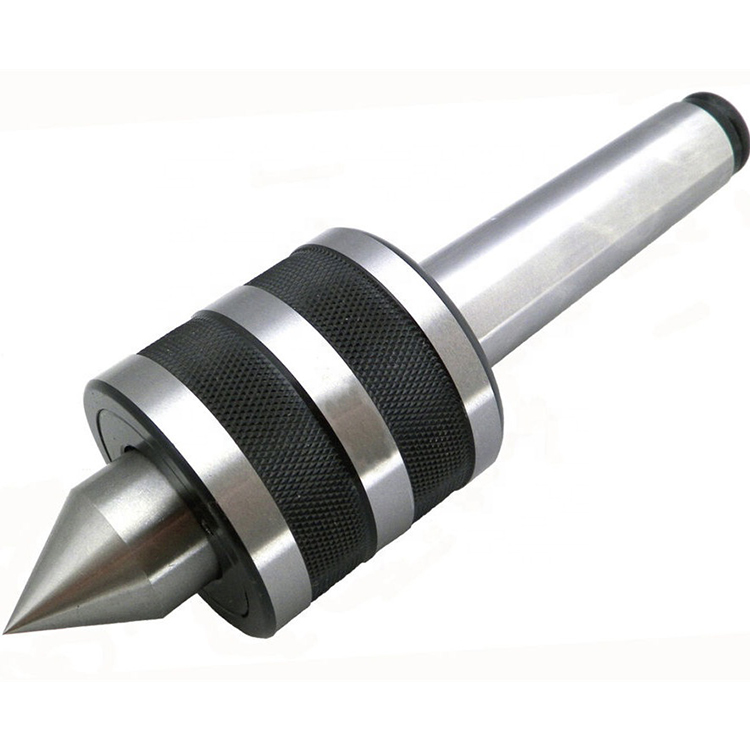 Midium Duty Live Center For Morse Taper Shank
Midium Duty Live Center For Morse Taper Shank -
 Precision V Block And Clamps Set With Industry Type
Precision V Block And Clamps Set With Industry Type -
 MT/R8 Shank Quick Change Tapping Chuck With MT & R8 Shank
MT/R8 Shank Quick Change Tapping Chuck With MT & R8 Shank -
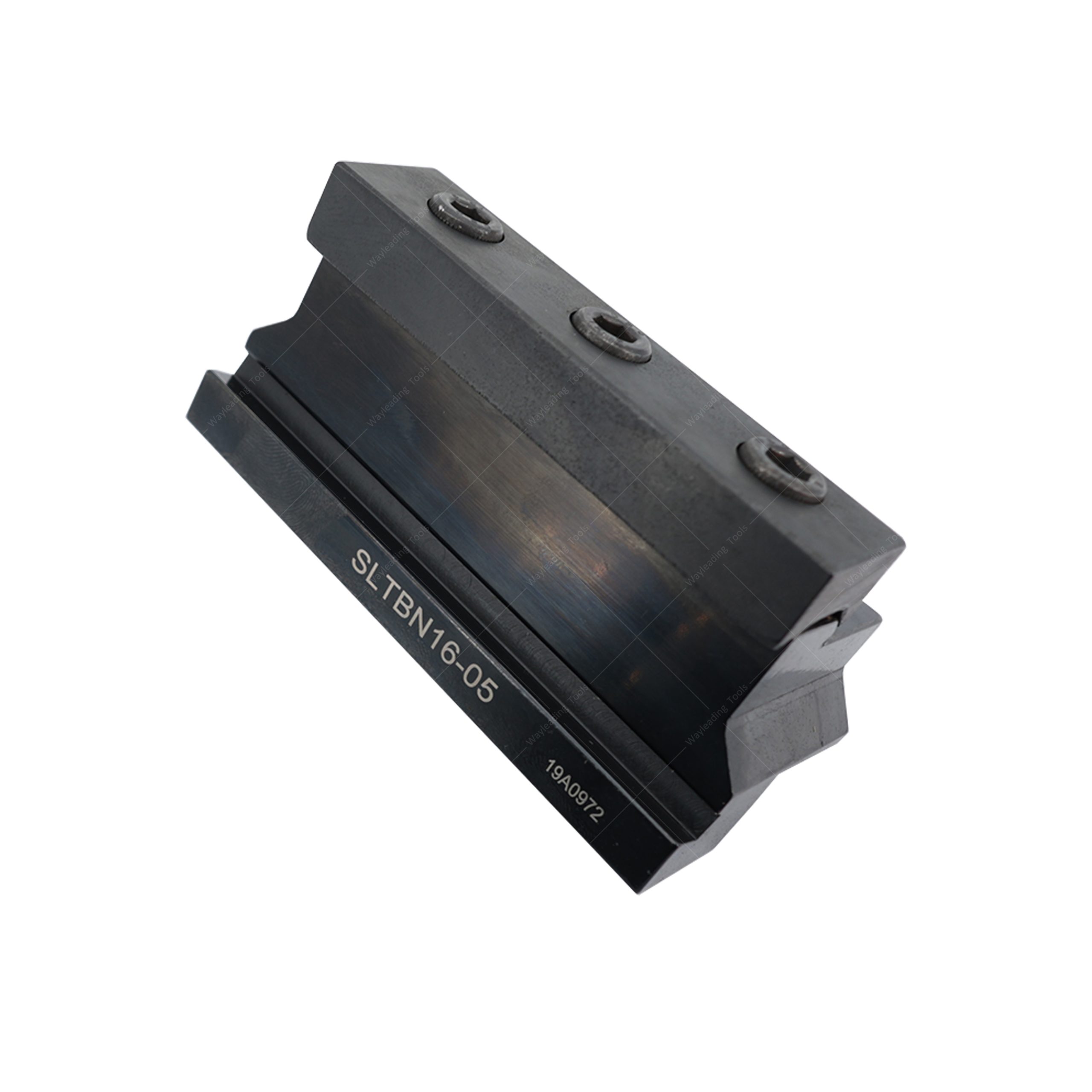 Parting & Grooving Tool Block For NCIH Blades
Parting & Grooving Tool Block For NCIH Blades -
 Boring Head Shank For Boring Head With Industrial Type
Boring Head Shank For Boring Head With Industrial Type -
 Inch Solid Carbide Twist Drill With Internal Coolant & External Coolant
Inch Solid Carbide Twist Drill With Internal Coolant & External Coolant -
 Precision Vernier Caliper With Nib Style & Standard Style Jaws Of Metric & Imperial For Industrial
Precision Vernier Caliper With Nib Style & Standard Style Jaws Of Metric & Imperial For Industrial -
 Precision Outside Micrometer With digit Counter Of Inch & Metric With Rachet Stop
Precision Outside Micrometer With digit Counter Of Inch & Metric With Rachet Stop




